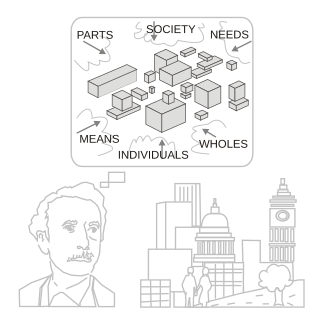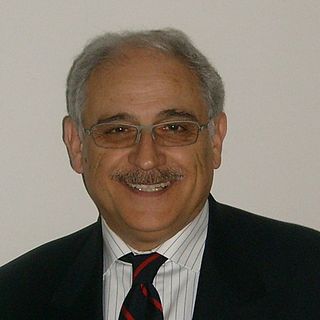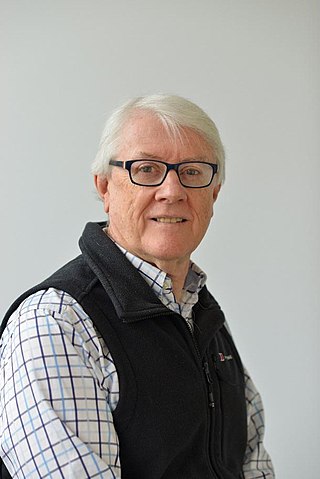Related Research Articles
Systems theory is the transdisciplinary study of systems, i.e. cohesive groups of interrelated, interdependent components that can be natural or human-made. Every system has causal boundaries, is influenced by its context, defined by its structure, function and role, and expressed through its relations with other systems. A system is "more than the sum of its parts" by expressing synergy or emergent behavior.

Action research is a philosophy and methodology of research generally applied in the social sciences. It seeks transformative change through the simultaneous process of taking action and doing research, which are linked together by critical reflection. Kurt Lewin, then a professor a MIT, first coined the term "action research" in 1944. In his 1946 paper "Action Research and Minority Problems" he described action research as "a comparative research on the conditions and effects of various forms of social action and research leading to social action" that uses "a spiral of steps, each of which is composed of a circle of planning, action and fact-finding about the result of the action".
Chris Argyris was an American business theorist and professor at Yale School of Management and Harvard Business School. Argyris, like Richard Beckhard, Edgar Schein and Warren Bennis, is known as a co-founder of organization development, and known for seminal work on learning organizations.
Peter Checkland is a British management scientist and emeritus professor of systems at Lancaster University. He is the developer of soft systems methodology (SSM): a methodology based on a way of systems thinking systems practice. Systems practice is the idea of uncovering an optimal solution within complex environments, thus leading to a thorough understanding of the system, analysing and adapting to change in the environment. In an important way his work preceded data science and change management disciplines in the next century.

Systems science, also referred to as systems research, or, simply, systems, is a transdisciplinary field concerned with understanding systems—from simple to complex—in nature, society, cognition, engineering, technology and science itself. The field is diverse, spanning the formal, natural, social, and applied sciences.

Russell Lincoln Ackoff was an American organizational theorist, consultant, and Anheuser-Busch Professor Emeritus of Management Science at the Wharton School, University of Pennsylvania. Ackoff was a pioneer in the field of operations research, systems thinking and management science.
Soft systems methodology (SSM) is an organised way of thinking that's applicable to problematic social situations and in the management of change by using action. It was developed in England by academics at the Lancaster Systems Department on the basis of a ten-year action research programme.
In business management, a learning organization is a company that facilitates the learning of its members and continuously transforms itself. The concept was coined through the work and research of Peter Senge and his colleagues.

A system is a group of interacting or interrelated elements that act according to a set of rules to form a unified whole. A system, surrounded and influenced by its environment, is described by its boundaries, structure and purpose and is expressed in its functioning. Systems are the subjects of study of systems theory and other systems sciences.

Management cybernetics is concerned with the application of cybernetics to management and organizations. "Management cybernetics" was first introduced by Stafford Beer in the late 1950s and introduces the various mechanisms of self-regulation applied by and to organizational settings, as seen through a cybernetics perspective. Beer developed the theory through a combination of practical applications and a series of influential books. The practical applications involved steel production, publishing and operations research in a large variety of different industries. Some consider that the full flowering of management cybernetics is represented in Beer's books. However, learning continues.
Michael Christopher Jackson OBE is a British systems scientist, consultant and Emeritus Professor of Management Systems and former Dean of Hull University Business School, known for his work in the field of systems thinking and management.

John Pourdehnad is an American organizational theorist, and consultant. He is associate director of the Ackoff Center for Advancement of Systems Approaches (ACASA), and Affiliated Faculty in the Organizational Dynamics Graduate Program at the University of Pennsylvania.
Critical systems thinking (CST) is a systems approach designed to aid decision-makers, and other stakeholders, improve complex problem situations that cross departmental and, often, organizational boundaries. CST sees systems thinking as essential to managing multidimensional 'messes' in which technical, economic, organizational, human, cultural and political elements interact. It is critical in a positive manner because it seeks to capitalize on the strengths of existing approaches while also calling attention to their limitations. CST seeks to allow systems approaches such as systems engineering, system dynamics, organizational cybernetics, soft systems methodology, critical systems heuristics, and others, to be used together, in a responsive and flexible way, to maximize the benefits they can bring.

Cybernetics is a wide-ranging field concerned with circular causal processes such as feedback. The field is named after an example of circular causal feedback—that of steering a ship. In steering a ship, the helmsperson adjusts their steering in continual response to the effect it is observed as having, forming a feedback loop through which a steady course can be maintained in a changing environment, responding to disturbances from cross winds and tide. Cybernetics is concerned with the principles of circular causal processes such as steering however they are embodied, including in ecological, technological, biological, cognitive and social systems and also in the context of practical activities such as designing, learning, managing, etc. Cybernetics' transdisciplinary character has meant that it intersects with a number of other fields, leading to it having both wide influence and diverse interpretations.

David Ing is a Canadian systems scientist, business architect, management consultant, and marketing scientist. He served as president of the International Society for the Systems Sciences (2011-2012).
Jennifer M. Wilby is an American and UK management scientist, and past director of the Centre for Systems Studies, and a senior lecturer and researcher in management systems and sciences in The Business School, University of Hull. She served as president of the International Society for the Systems Sciences for the term 2010–2011.
Systems-oriented design (SOD) uses system thinking in order to capture the complexity of systems addressed in design practice. The main mission of SOD is to build the designers' own interpretation and implementation of systems thinking. SOD aims at enabling systems thinking to fully benefit from design thinking and practice and design thinking and practice to fully benefit from systems thinking. SOD addresses design for human activity systems and can be applied to any kind of design problem ranging from product design and interaction design through architecture to decision-making processes and policy design.
Gerald Robert Midgley is a British organizational theorist, professor of systems thinking, director of the Centre for Systems Studies at the University of Hull, and past president (2013-2014) of the International Society for the Systems Sciences. He is known for his work on "Systemic Intervention;" which he defined as "purposeful action by an agent to create change in relation to reflection upon boundaries."

Raymond L. Ison is an Australian-British cybernetician, systems scholar/scientist, and Professor of Systems at the Open University in the UK. He is currently President of the International Federation for Systems Research (IFSR). He was also Professor Systems for Sustainability at Monash University, and fellow at the Centre for Policy Development, and President of the International Society for the Systems Sciences in the year 2014-15. He is known for his work on systems praxeology within rural development, sustainable management, systemic governance and the design and enactment of learning systems.

Problem structuring methods (PSMs) are a group of techniques used to model or to map the nature or structure of a situation or state of affairs that some people want to change. PSMs are usually used by a group of people in collaboration to create a consensus about, or at least to facilitate negotiations about, what needs to change. Some widely adopted PSMs include
References
- 1 2 3 4 Flood, Robert Louis. Rethinking the fifth discipline: Learning within the unknowable. Routledge, 2002. p. xiv.
- ↑ Rosenhead, Jonathan, and John Mingers. Rational analysis for a problematic world revisited. John Wiley and Sons, 2001.
- ↑ Kemmis, Stephen, and Robin McTaggart. "Communicative action and the public sphere." Denzin, NK & Lincoln, YS (red.), The Sage handbook of qualitative research 3 (2005): 559-603.